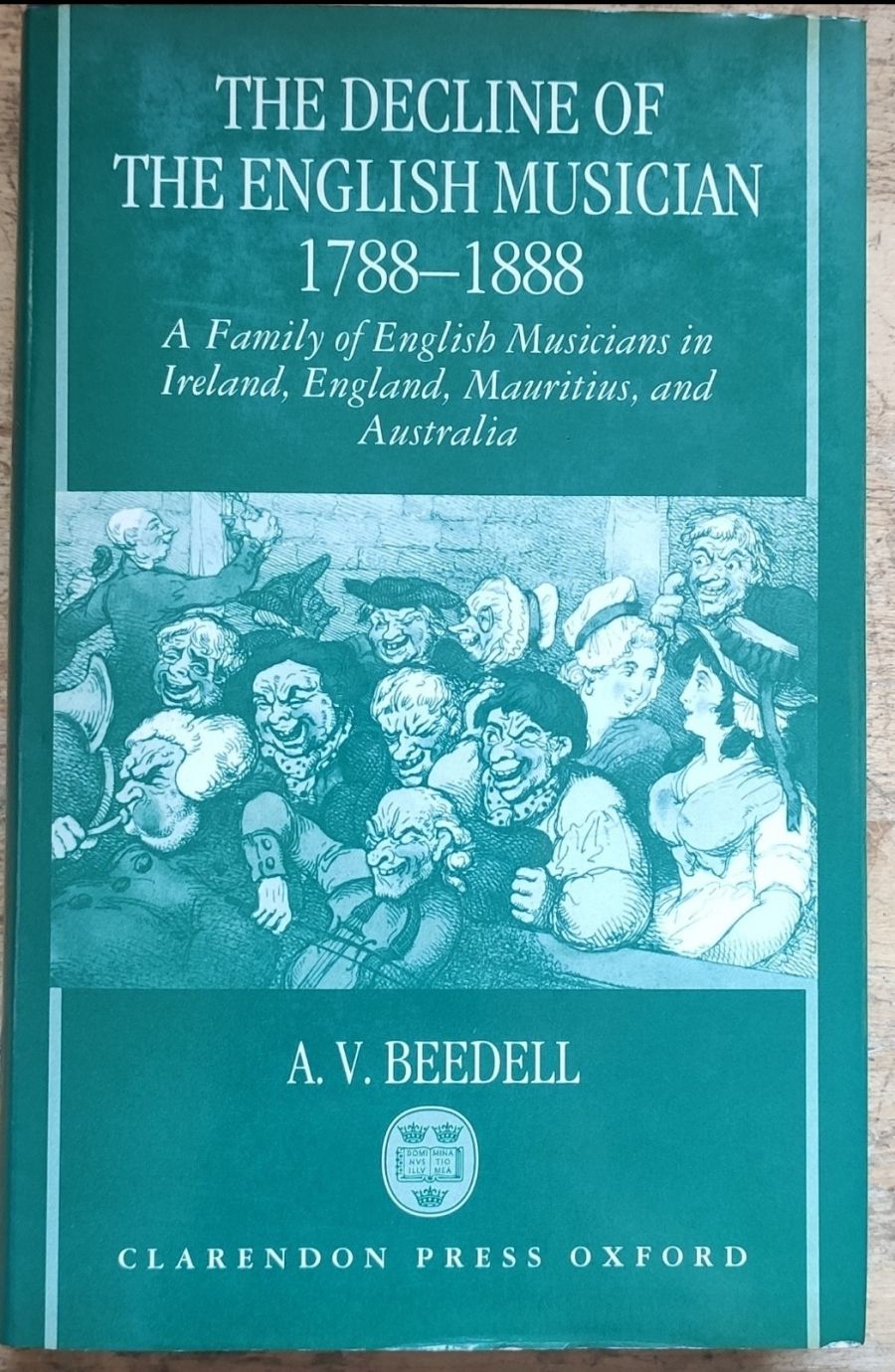
- Free Article: No
- Review Article: Yes
- Article Title: A double-bass sinks in Sydney harbour
- Online Only: No
- Custom Highlight Text:
This book opens with the pregnancy of an Irish actress in 1789 and concludes with the death of her grandson in 1888. There is mystery at both ends of the story, relating in the first case to paternity and in the second to the source of a substantial estate. In between comes a drama of marital dissonance and economic survival played out against the great crisis brought upon the musical profession in England by the collapse of its family-based guild traditions.
It is a gripping read and would make a wonderful mini-series; but it is equally a very welcome contribution to the social history of musical performance over the period when the art was first establishing itself in Australia.
- Book 1 Title: The Decline of the English Musician 1788-1888: A family of English musicians in Ireland, England, Mauritius, and Australia
- Book 1 Biblio: Oxford University Press, $120 hb
It is a gripping read and would make a wonderful mini-series; but it is equally a very welcome contribution to the social history of musical performance over the period when the art was first establishing itself in Australia.
It is the author’s argument, ably sustained, that the native-born musicians of England ‘failed as a group to integrate themselves into the evolving economic and social framework of middle-class professionalism’. Among the reasons given for this are uncontrolled foreign competition, a post-Lockean philosophical climate fundamentally hostile to the art, and the disdain of both aristocratic and bourgeois music-lovers for the native product. While university doctorates in music were still awarded, the cathedrals had ceased to provide adequate training for young aspirants, while secular academies were slow to take over this role. Training under the apprenticeship system left musicians only half-educated and sometimes semi-literate. Pretensions to gentility, symbolised by formal working clothes that often cost more than their instruments, could be maintained only by an incessant round of teaching and playing, which in the case of the Castell family of double-bass players was also physically taxing. William Joseph Castell, the anti-hero of this story, did his best to escape the professional ghetto through speculation and entrepreneurship.
Unfortunately, success in these areas required gifts of prudence and persistence which he totally lacked. Incorrigibly feckless, he married a widow, squandered her funds, and then embarked on a series of more agreeable liaisons, having first encumbered her with another recipe for poverty in the form of a young family. Decamping to France, Mauritius, and finally Australia, he met his death in 1839 in the waters of Sydney Harbour, while trying either to save or to drown his current mistress.
The main source for the story is the collection of letters written to Castell by his deserted wife, Susannah, which are preserved in the NSW archives. As much a prototype of Victorian heroic motherhood as her husband was a relic of Regency hedonism, she was nonetheless strangely tolerant of his ‘incontinence’ with other women. At one point she was prepared to accept his mistresses into the family home and at another, in order to ease his position with an indignant father, to insinuate that her marriage was not legal. Beedell makes dear that the marriage was genuine enough, but does not consider whether it may have been bigamous on his part – a common enough situation with travelling stage performers and musicians.
Susannah’s much-underlined prose is by turns plangent and ridiculous, as she probably was in real life, but there was nothing funny about her desperate attempts to maintain a pretence to respectability in a decaying house, while nourishing her family on a diet of bread, soup, and potatoes. (The progressive collapse of the house becomes a poignant metaphor for that of the relationship.) Much in this allusive and one-sided correspondence has had to be enlarged on speculatively but the speculations are generally plausible and where they are not readers will make their own judgements of the matter.
The method of the book is one of working out from the letters to other documentary sources that clarify and contextualise them. The enriched family narrative is then meshed in with the broader professional history, providing illumination in both directions. My only complaints about this original and lively study arise from an occasional tendency to lapse into the verbose style of the sources, and the absence of a family tree. The price is, of course, outrageous; so let’s hope that even without the miniseries we will eventually see a paperback.


Comments powered by CComment